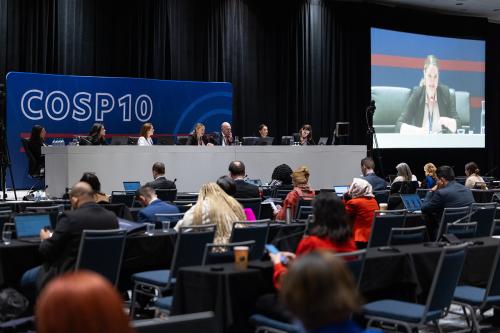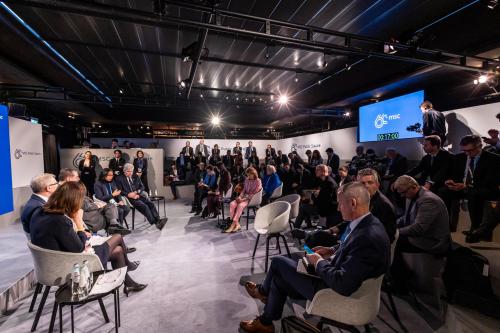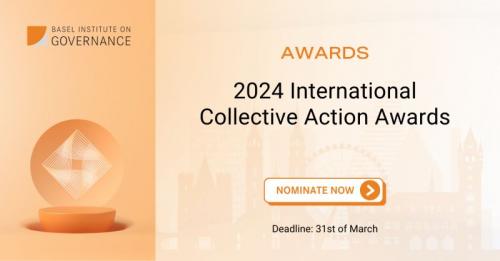Collective Action Conference 2014: How can companies more effectively fight corruption?
Comments from the Basel Institute on Governance Conference on Anti-Corruption Collective Action to address corporate and multi-stakeholder initiatives against bribery and extortion:
Some 150 experts from the worlds of business, civil society and government as well as international organisations began meeting today in Basel, Switzerland, to discuss the role of Collective Action as a tool in the fight against corruption. Anti-corruption Collective Action consists of initiatives that are formed by groups of companies, or multi-stakeholder groups, seeking to overcome common bribery and extortion problems faced by businesses.
"The ability of corrupt networks and organized crime to effect state capture means that we are in a condition where one sometimes needs to ask whether a powerful corruption network has a state in its grip or whether the state itself has become a corruption network. Either way, such a condition won't be dismantled easily; strong and united coalitions of companies, civil society and others whose aim is to tackle systemic corruption can however make a difference” said prominent Kenyan anti-corruption activist John Githongo, CEO, Inuka Kenya Ni Sisi Ltd., in his keynote address.
“Challenges are however still of a great magnitude”, said Basel Institute on Governance President Mark Pieth stated in his opening remarks. He continued: “There is a need for introducing an element of creativity in the fight against corruption”.
Targeted breakout sessions scheduled to take place during the conference will provide participants with the opportunity to delve further into the topics of Collective Action and collaboration in order to develop practical solutions for tackling these critical issues.
"It is essential to have an international dialogue which brings together all of the key actors concerned with Collective Action to further support clean business," said Dr Andreas Hoffmann, General Counsel of Siemens, commenting on the morning sessions before delivering his keynote speech."The conference is a major step in giving substance to this dialogue and will fundamentally support the B20 Collective Action Hub, which is run by the Basel Institute ́s International Centre for Collective Action (ICCA) in partnership with the UN Global Compact. The Hub offers tools and a forum for businesses and governments to take concrete steps to jointly step up against corruption and strengthen good business practice.”
Adding to this, Soji Apampa, Head of the Convention on Business Integrity, a Nigeria-based NGO with the mission of promoting ethical business practices, confirmed that “goal congruence between businesses and between businesses and NGOs results in their partnership, which is key to advancing Collective Action and more effectively prevent corruption.”
The meeting is the first international conference convened by the Basel Institute on Governance’s new Centre for Collective Action. It is part of the G20/B20 anti-corruption agenda aimed at identifying mechanisms that may effectively support companies’ efforts to resist bribery and extortion. The conference is organised with support from the Siemens Integrity Initiative.




